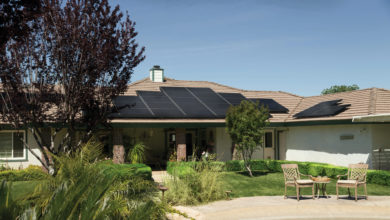Looking for heating appliances nowadays can be quite tiring if you’re new to this subject – there are just so many types of devices to choose from! One of the more unexpectedly good options, however, is oil heaters. With oil being such a controversial subject today it’s almost funny how viable oil heaters are as a heating option for your home.
So, what do you need to know about oil heaters? Here’s our complete guide about them.
How do oil heaters work?
Oil heaters work much on the same principle as the classic centralized water heater radiators – the metal container is made with a series of fins or columns which house the liquid. Once the liquid, in this case, the oil, is heated, it gives off heat through the fins.
The difference between oil heaters and centralized water radiators is that the oil remains in the heater constantly and doesn’t circulate through the building going to and coming from the boiler in the basement. Instead, the oil gets heated through an electric coil/helix component and remains inside the body of the oil heater.
Because oil has such a high boiling point and can store so much heat, the oil inside oil heaters doesn’t need to be circulated or replaced – it just stays there and can be reheated and cooled down almost indefinitely.
How long do oil-filled heaters last?
A new, high-quality oil heater can last anywhere between 16 and 20 years without a hiccup or even more if it’s properly maintained. This lifespan is restricted not so much by the oil itself but by the lifespan of the heating coil inside of it – the coil that heats the oil itself.
As long as the coil temperature remains between 750 and 1000 degrees Fahrenheit (400-540 degrees Celsius) consistently, the ~20-years lifespan is very likely. If the temperature of the heater starts dropping sooner, the most likely problem is the coil itself, not so much the oil.
Using your oil heater moderately can prolong its lifespan as it’s more sparing to the coil. Otherwise, using your heater constantly and at max temperature will wear out the coil sooner and the heater might last only 10 to 15 years or even less.
Mechanical damage and corrosion can also shorten the lifespan of your heater.
Oil-filled radiator heater cost to run
Since oil heaters use electricity to run, it’s your electricity bill that will suffer from these devices. Fortunately, it won’t suffer that much – the maximum power consumption you can expect from an oil heater is similar to that of conventional electric space heaters – about 1,500 watts at most or 700-800 watts on a low-energy setting which most modern oil heaters come with.
At the average U.S. national electricity rate of $0.12 per kilowatt-hour, this means you can pay as little as $0.18 per hour at maximum power or ~$0.10 per hour at lower settings.
Oil-filled heater efficiency
Efficiency is another benefit of oil heaters. On average, oil heaters burn about 16% more efficiently than natural gas heaters. That’s because heating oil creates ~140,000 BTUs of heat per gallon where gas produces a bit more than 100,000 BTUs per gallon.
A lot of people are under the impression that oil heaters aren’t that efficient and that’s because they didn’t use to be. However, the efficiency of oil heaters has nearly doubled in the last couple of decades and modern oil heaters range from 83% to 95% efficiency ratings.
Are oil heaters eco-friendly?
Another thing that’s changed for the positive with oil heaters in the past 2 decades is that they’ve become considerably more eco-friendly. At the end of the 20th century their sulfur content was over 1% and today it’s about 0.5% – twice less.
This makes oil heaters much more eco-friendly than propane or gas heaters as not only do they burn more safely and don’t pollute the air while working, but their production process is more eco-friendly as well. A German study posted in a 2004 issue of Oil & Energy pointed out that “In an analysis of global warming potential using a time horizon of 20 years, natural gas heating is notably more environmentally damaging than oil heating.”
Are oil heaters safe to leave on overnight?
In a word – yes, although many would advise against it. Heating oil can’t be ignited without a specific and advanced burning system, and the heating coils inside the heaters can only heat up the oil but can’t reach its burning temperature. You can quite literally drop a lit match inside your heater’s oil and it will go out as if it was dropped in water (still, do NOT do this, obviously).
But in short, oil heaters are as safe to leave on overnight as standard centralized water heated radiators.

The dangers of oil heaters
Good oil heaters come with multiple safety features and a properly certified heater should be perfectly safe. Still, they can malfunction as we mentioned above, which is why it’s always important to perform a proper checkup at the beginning of every cold season or even just every month. An oil leak can be quite dangerous, for obvious reasons, and placing your heater too close to an easily flammable piece of furniture is also risky.
The Pros and Cons of oil heaters
For a quick summary, here are the main pros and cons of oil heaters:
Pros:
- Energy-efficient.
- Eco-friendly.
- Compact and mobile.
- Oil doesn’t need to be refilled.
- Thermostat-controlled.
- Noiseless.
- No fumes.
- Multiple safety features.
- Programmable.
- They take a while to cool down and keep heating in the meantime.
Cons:
- Take a while to heat up.
- They are usually quite small so they are only for medium-sized rooms.





